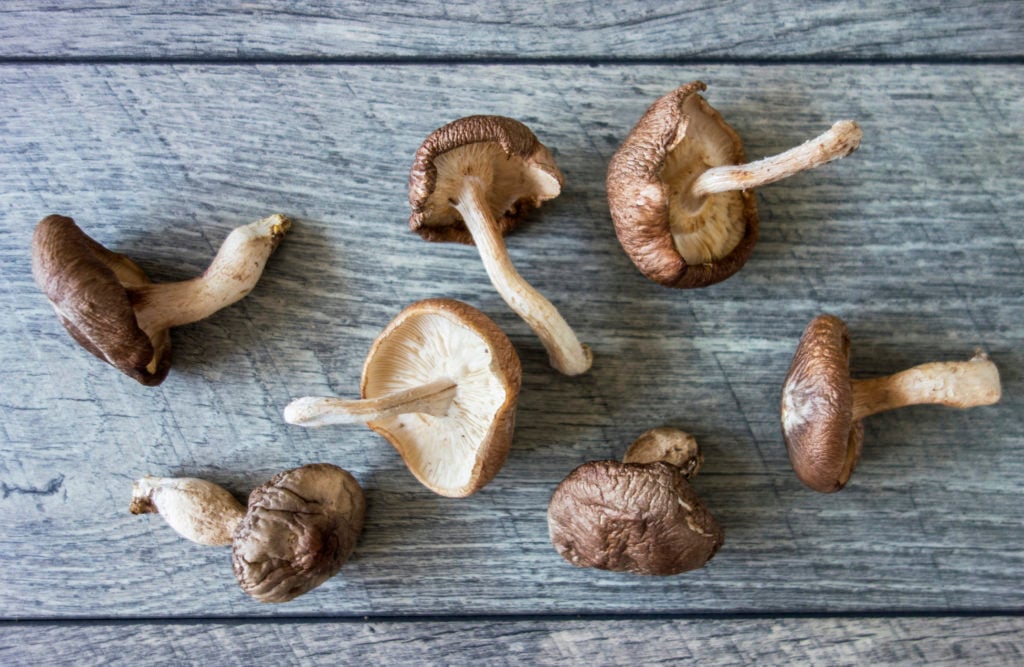
Struggling with a nasty virus is a battle that no one wants to fight. Luckily, most infections will run their course, and after a week or two, you will start to feel better. However, some infections that don’t always play by this rule, one such example is glandular fever (aka infectious mononucleosis), which is caused by the Epstein-Barr virus (EBV).
You or someone you know has likely dealt with a bout of glandular fever; it’s commonly seen in young adults, lasts at least four to six weeks, and causes symptoms such as fatigue, swollen glands, fever, extreme tiredness and aching muscles.
In some cases, symptoms can linger for weeks or even months after the infection has passed; leading to a condition known as ‘post-viral fatigue’. Glandular fever can take a bigger toll on your body than other viruses because it overwhelms your immune system by making itself tricky to eradicate, making recovery so much slower. To combat this, natural medicine can help to shorten your recovery time and lead you back to full health.
You or someone you know has likely dealt with a bout of glandular fever; it’s commonly seen in young adults, lasts at least four to six weeks, and causes symptoms such as fatigue, swollen glands, fever, extreme tiredness and aching muscles.
1. Boost your immunity with AHCC™
The thing that makes EBV so difficult to beat is that it envelops itself inside a shell made of proteins (known as a capsid), which makes it hard for your immune cells to access the virus and attack it. Whilst your immune system is breaking down the capsid, the virus works quickly to replicate itself so that it can infect more of your cells. This puts a lot of pressure on your immune system to control the spread of the virus.
Active hexose correlated compound (AHCC™), a compound sourced from shiitake mushrooms, has been shown to improve your ability to eliminate EBV by increasing your immune system’s antiviral activity. In fact, AHCC™ helps outsmart EBV by increasing your immune system’s production of powerful anti-viral proteins, which improves your ability to eliminate viral infections. These proteins can block the mechanisms that the virus uses to infect your cells, weakening the tactics it uses to overpower you.

2. Take Time to Convalesce
Although your doctor advised you to take it easy, it can be hard to stay still when the rest of the world isn’t slowing down. However, nothing is more important than allowing yourself time to convalesce, which means fully recovering before you ease back in to your regular routine. Without it, your immune system can suffer, and this leads to a longer recovery time.
Taking the time to rest can mean many things, including:
- Taking time off work or school wherever possible;
- Building relaxation into your schedule;
- Setting boundaries and avoiding over-extending yourself; and
- Achieving between seven and eight hours of sleep per night, getting to bed by 10 pm at the latest.
Try making these pointers daily goals, so that you can properly convalesce and move forward in your healing journey.
Nothing is more important than allowing yourself time to convalesce, which means fully recovering before you ease back in to your regular routine.
3. Nourish Yourself
Nutrition, fresh air, water, and exercise are the fuel that keeps every cell in your body thriving and healing. As such, when recovering from infection, it is important to nourish yourself by:
- Maintaining a diet abundant in fruits, vegetables and protein-rich foods to provide the nutritional resources for your body to heal;
- Consuming hearty meals such as slow-cooked dishes that are nutritious and easy to digest;
- Maintaining light exercise levels, such as walking and stretching;
- Keeping warm, as this will save your energy for healing, rather than maintaining your body temperature;
- Avoiding smoking and excessive alcohol consumption; and
- Boosting your immune-enhancing nutrients that help you to fend off other nasty infections, including zinc and vitamin C.

To learn more about the nourishing habits to help you find your fire again, speak to a natural health Practitioner.
4. Mind your Mental Health
Putting your life on hold to recover can feel incredibly disheartening sometimes, which is why it’s important to manage your mental wellbeing on your healing journey.
Low moods can cause you to think negatively about your recovery (e.g. that you will be ill indefinitely), and research has shown that this can predict a longer recovery time (i.e. fatigue lasting more than six months). As such, breaking the cycle of low moods can help to limit your symptoms from lingering.
Being aware of your thoughts is the first step to acknowledging their influence on your health, and accepting your feelings is part of the recovery process. On top of this, there are a number of other ways to support your mental wellbeing, including:
- Proactively managing your stress levels (ensuring they remain as low as possible) by identifying and doing what you can to resolve stressful situations (e.g. delegating tasks to other household members); and
- Engaging in gentle exercise to boost brain chemicals that enhance mood and even improve self-esteem.
If the stress of being unwell feels like it’s getting too much, consider making an appointment with a counsellor or psychologist to talk through your emotions and fears related to your health. On top of this, working with a Naturopath who can also prescribe herbal or nutritional formulas to enhance your mood can also assist and promote your recovery; supporting you to feel mentally stronger and more resilient.
Being Proactive in the Face of Glandular Fever
Start by taking proactive steps with the aid of a Naturopath who can tailor a treatment plan, which may include AHCC™ and other immune-supporting supplements, to meet your needs. Your Practitioner can also encourage your convalescence, reinforce nourishing habits and support your mental health. In time, your inner spark and energy levels will return, allowing you to step into a healthier future free from EBV.
So helpful. And holistic. Thank you